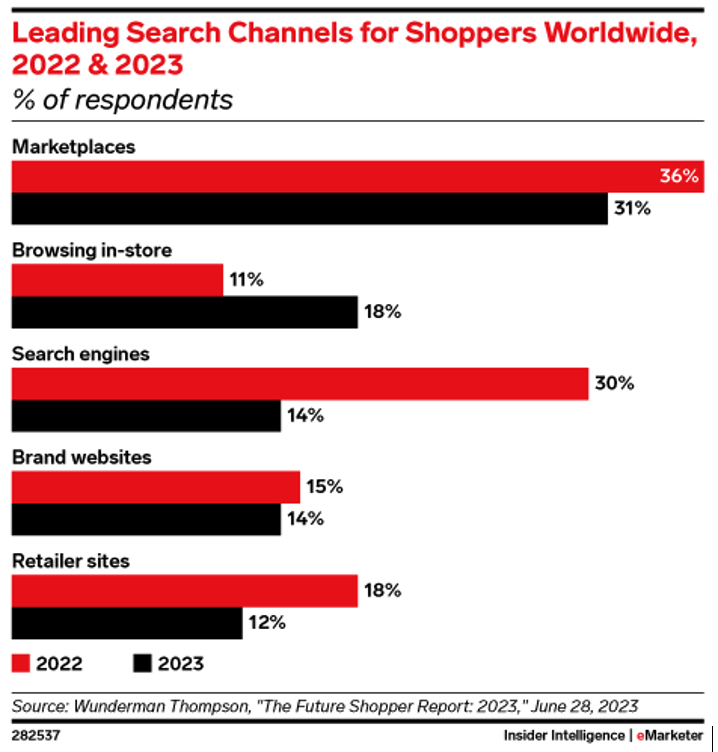Non-Search Engine Online Ad Options To Target Asia

The Asian market is growing.
Aside from the usual suspects, such as China, Japan, and South Korea, other Asian countries have grown their online presence in recent years.
Many other countries, including Malaysia, the Philippines, and Singapore, have over 90% online user penetration rates.
Bangladesh, India, Indonesia, and Pakistan have over 100 million Internet users.
According to Nielsen’s report, advertising spending in Asia’s main markets grew by 12%, and digital ad spending increased by 64% in 2022.
The expenditure is also growing in countries such as Singapore and Thailand, showing that these countries are also worth running advertising campaigns in.

Customer Journey
When you run ad campaigns targeting Asian countries, I’m sure you allocate most of the online advertising budget to the search and display campaigns through search engine platforms such as Google Ads.
Some of you may also have ads running through Naver in South Korea, Baidu in China, or Yahoo! Japan in Japan.
Have you wondered if you are reaching the target audience effectively in the market?
What if there are other ways to put yourself in front of the audience in those key markets in Asia for your business?
According to eMarketer’s report, 31% of survey respondents selected marketplaces as their #1 search channel for shopping, followed by browsing in-store (18%) and search engines (14%).
The number of respondents who selected search engines dropped from 30% in 2022 to 14% in 2023.
In Indonesia, the channel shift is accelerating toward social commerce, which is expected to grow from $8.2 billion in 2023 to $22 billion by 2028.
 Image from eMarketer.com, September 2023
Image from eMarketer.com, September 2023The bad news is that you may miss out on significant business opportunities by not advertising on platforms other than search engines.
The good news is there are platforms where you can advertise in Asian countries. Obviously, I cannot list all of them, but here are some of the most popular websites and apps.
Marketplaces
Taobao & Tmall
Very popular marketplace owned by Alibaba, with each boasting more than 800 million monthly users.
While Taobao is popular for C2C, Tmall is just for B2C.
JD.com
Another popular ecommerce site in China with over 580 million registered users.
Its service model is similar to that of Amazon.
Rakuten
It’s a popular shopping platform in Japan that has more daily users than Amazon.co.jp, with 40.5 million monthly active users.
Their domestic ecommerce had a total sale of 8,000 billion yen (about 5.5 billion US dollars) in 2022.
In addition to a Japanese site, they have websites for the US, France, Germany, and Taiwan.
G Market
G Market is a top shopping mall site in South Korea with 22 million users. (eBay owns a majority share of them now.) The site is in English, Chinese, and Korean.
Social Media
TikTok
TikTok is popular in China as well as around the world.
In other Asian countries, it’s gaining popularity, especially among younger audiences.
It’s banned in India, but many still use it via VPN.
China’s popular SNS/messaging service, it offers services in 19 languages, including Chinese, Japanese, English, Spanish, Indonesian, Thai, Korean, and Vietnamese.
WeChat has over 1.3 billion users.
China’s popular service has around 258 million daily active users.
The users are mainly Chinese-speaking people in China and other countries, including Singapore, Hong Kong, the USA, Canada, and the EU.
LINE
LINE is popular in Japan, Thailand, Taiwan, and Indonesia, with more than 95 million monthly active users. It offers services in 17 languages.
KakaoTalk
Popular call and messaging service in South Korea with users around the world. It’s available in multiple languages, including English, Japanese, Chinese, Indonesian, Thai, Russian, and Spanish.
Social media platforms familiar to Western businesses, such as WhatsApp, Facebook, YouTube, and Twitter, are also popular in Asia. You may be surprised to hear that Twitter has about 42% market share in Japan.
Mobile Apps (M-Commerce)
In 2023, 88.9% of internet users in Southeast Asia will also be smartphone users – a higher rate than those in more economically advanced regions like North America and Western Europe.
It’s definitely mobile-first in Asian countries, but according to Nielsen’s report, more people are using desktops and TVs now than in the past. The rapidly growing streaming services could be another ad platform for your business.
How To Advertise
As the first step, you need to create an account with most of these marketplaces or social media services. Like Google and Microsoft, you can set up the ads yourself.
However, while many have an English site and offer services in English, customer support staff often need help with English. If you have staff fluent in the local language, it’s best to have that person create an account.
Otherwise, you may want to consult the ad agency offering the services to set up the account and campaigns. They know those platforms’ ad products, specs, and audience behaviors and help minimize your learning curve.
Trying Out New Ad Platforms
Different platforms could mean different groups of audiences.
First, you need to understand the user demographics and the behaviors. Even the same person behaves differently when they have another reason or goal for visiting the site.
Test any new platform with a small budget at first to see how it performs for you. If the initial test doesn’t go as well as you’d like, test the images, messages, etc., to see if the performance improves.
Conclusion
It is a rapidly expanding world with new market opportunities you have never considered. There are many ways to reach the target audience in each country.
If you are lucky to have an extra budget, you should explore other ad platforms to reach the audience. It opens a door for you to be seen by a new audience and reinforces the existing audience’s awareness.
If your budget is limited, you may be unable to run the ads everywhere. In that case, it is vital for you to invest in the ads at the platform where you get the most return on investment.
More resources:
Featured Image: Mix and Match Studio/Shutterstock
Source link : Searchenginejournal.com

![YMYL Websites: SEO & EEAT Tips [Lumar Podcast] YMYL Websites: SEO & EEAT Tips [Lumar Podcast]](https://www.lumar.io/wp-content/uploads/2024/11/thumb-Lumar-HFD-Podcast-Episode-6-YMYL-Websites-SEO-EEAT-blue-1024x503.png)

